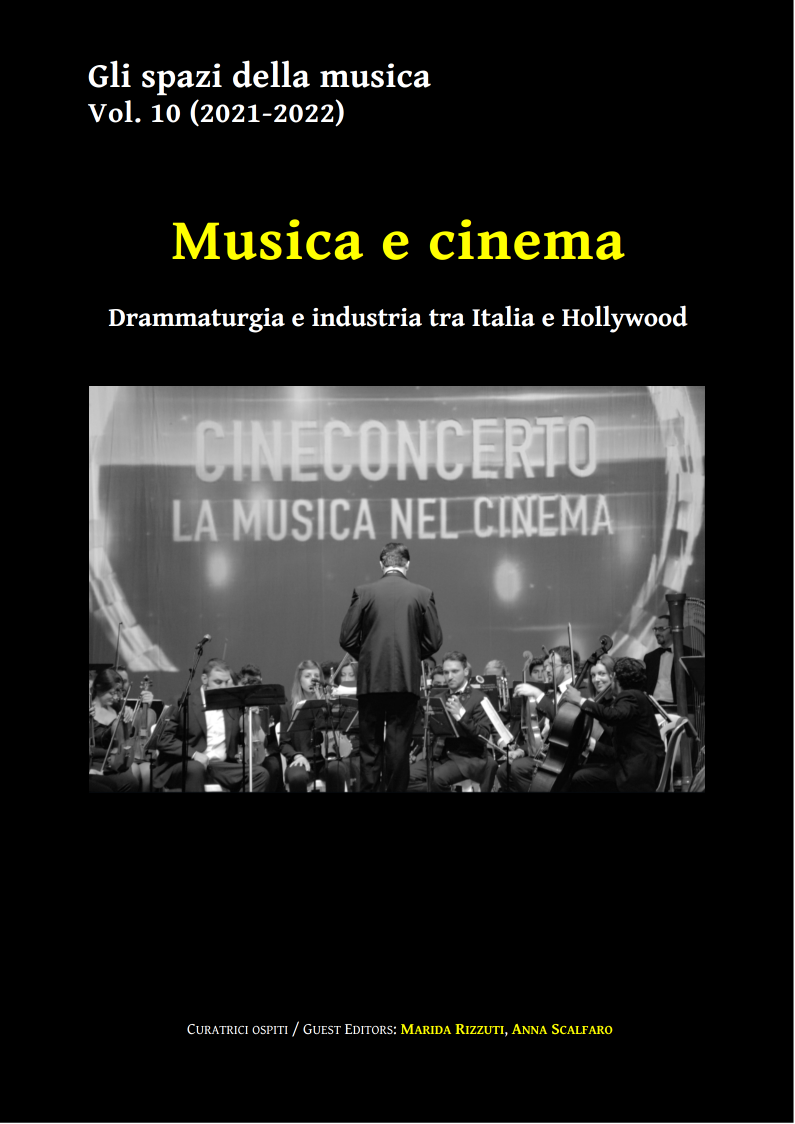Ritmo e audiovisivo. Una questione di metodo
Abstract
This essay addresses the methodological issue of film rhythm, i.e., relating to the tools useful for understanding and describing the rhythmic dimensions in the audiovisual media. I will try to take up the theme as outlined in the semiotic and filmological debates, to then deal with models of the psychology of music, and finally, on the basis of these two conceptual apparatuses, refer to the more specific studies of psychology and neuropsychology of rhythm. I will put forward the assumption that the sense of rhythm, due to its values of Gestalt organization, plays a fundamental role in narrative and event-based viewing, enhancing it. Yet, due to the dimensions of sensory-motor activation, sound rhythms, in particular, can induce both bodily and neural entrainment and constitute in film an auditive analogon of those embodied and enactive visual processes recognized by the most recent neuro-filmological approaches.
Keywords: rhythm; film theory; media experience; entrainment; timing
Downloads
Published
How to Cite
Issue
Section
License

This work is provided under the terms of the Creative Commons license Attribution - Noncommercial - No Derivative Works 3.0 Unported. The authors maintains all the the rights of the articles published in «Gli spazi della musica», included the publication rights.



